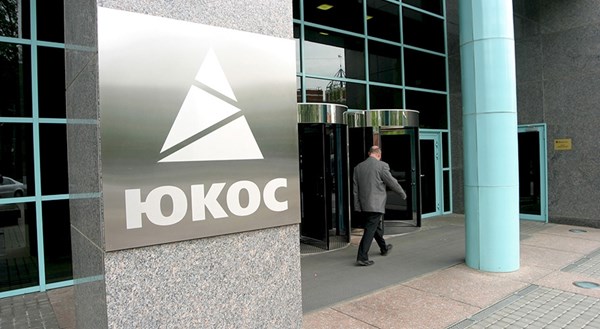Media: Hundreds of lawyers worked 'day and night' on appeals in the Yukos case
Les Echos newspaper reports that hundreds of legal experts, especially in France, worked day and night last year on the appeal that resulted in the Hague District Court’s ruling to overturn the decision for Russia to pay compensation in the amount of $50 billion to the former shareholders of Yukos Oil Company.
French journalists Valerie de Sennevil and Yves Burdiyon explained in their article "Billions and threats: Yukos story without an ending" that the Tribunal's decision does not mean the legal battle between Russia and the former shareholders of the oil company has ended.
"Given the judicial and media arsenal used by both parties, it is evident that the losing party will submit an appeal. And in this way it will continue from appeal to appeal. And, perhaps, everything will go on for decades," the newspaper emphasized, explaining that it is not just a "battle for $50 billion," but a case that has “huge political and diplomatic underlying motives."
According to media reports, a year ago Russia created the so-called International Legal Protection Center to work on this case. "Day and night, hundreds of professionals are working trying to find counter-arguments against the former shareholders of Yukos. Their task is to prove that the administrative secretary of the court played a crucial role in making of this decision at the time when he himself was not a judge," the newspaper notes.
"According to experts, the administrative secretary, hired by the head of the Permanent Court of Arbitration in The Hague, wrote at least three parts” of the text of decision, Paris lawyer of the Russian Federation Andrea Pinna told Les Echos. According to the defense, this is contrary to common practice in arbitration courts. This argument may seem superficial, says French edition, but it demonstrates that lawyers hired by the Russian Federation do not miss a single detail.
In addition, one of the Russian advisers in France told the publication that the Court of Arbitration in The Hague "misinterpreted the Energy Charter.” To justify its decision, the court relied on the Energy Charter, which sets the rules for cross-border energy cooperation but had not been ratified by Moscow in 1994. "In addition, the meaning of the Charter is to protect the investments, but the defendants did not make any investment in Yukos," the source said to Les Echos.
For his part, the Parisian attorney of former Yukos shareholders, Emmanuel Gaillard, called Russian arguments "artificial". The former Yukos shareholders have already said they will appeal the "unexpected" verdict. "We intend to appeal. It may take a couple of weeks," their lawyer, Tim Osborne said.
